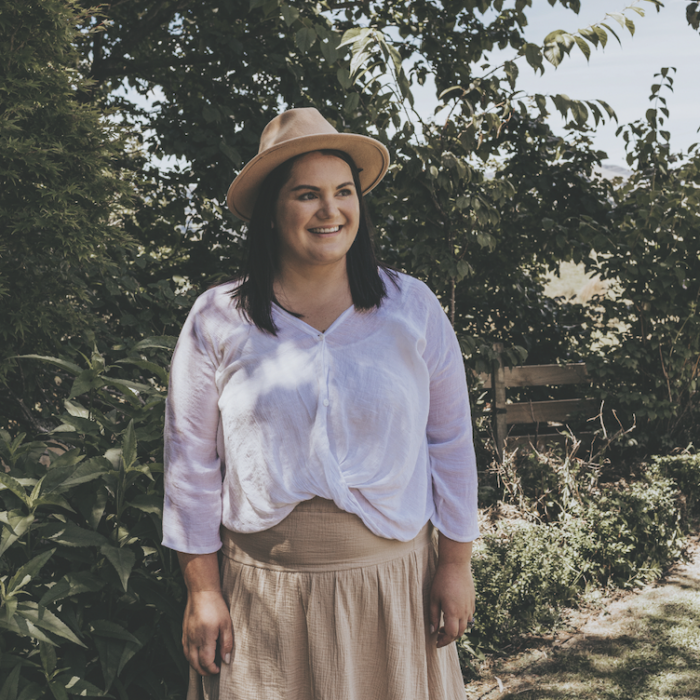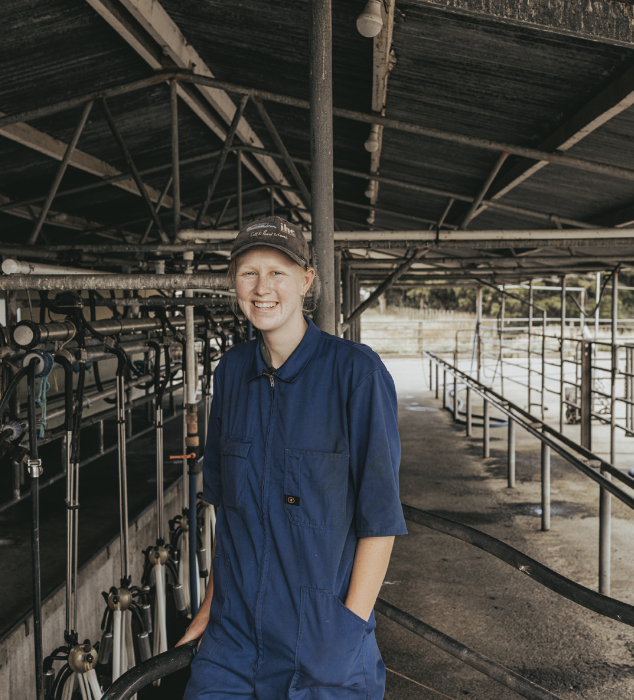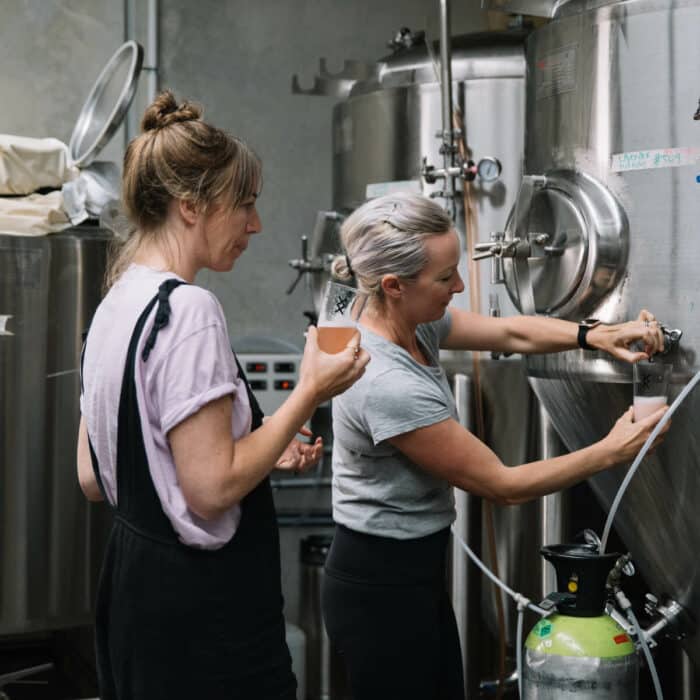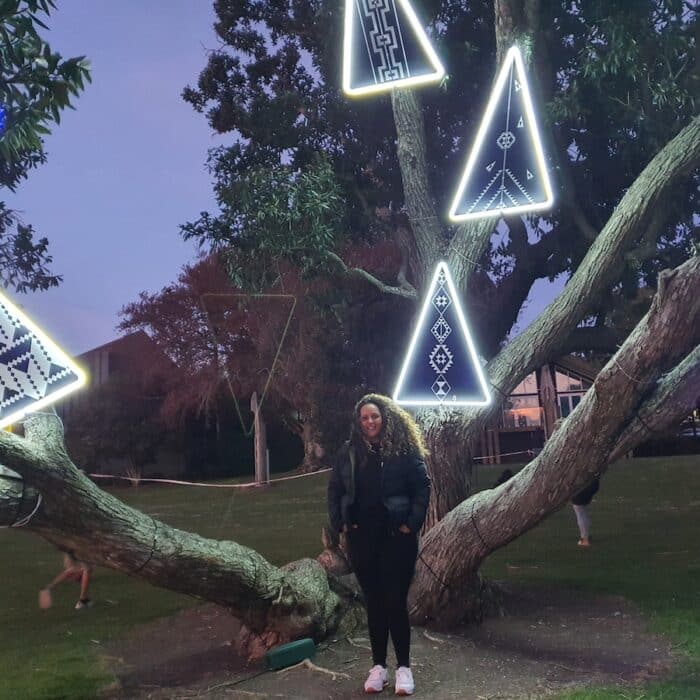
Three years ago, my grandfather was in a really bad truck accident. He was transporting fertiliser when the road gave way under his trailer and his truck rolled down a fifteen metre bank. He was thrown from the truck and had to be flown by helicopter to Palmerston North Hospital. His skull was cracked and his face and body were bruised.
My mum and I drove an hour straight from Whanganui. Inside the hospital, my mum stood at the head of his bed, looking down at him. His neck brace stopped him from being able to move. I was sobbing so much I couldn’t breathe. My dad was pretty much absent growing up, so my koro is a father figure to me. Also, no one knew then, but I had miscarried a few weeks earlier. All of that pain came spilling out. The thought of another loss was more than I could bear.
But Mum, she was so strong. She told Koro that everything was going to be okay and that Nana Bev, his late wife, was with him, protecting him. Koro was in intensive care for a week, and the doctors were very clear – he needed rest. He had a brain injury and had broken the vertebrae at the base of his neck. We couldn’t really talk to him. He would become overwhelmed and confused at times, but we would comfort him so that he didn’t feel so lost. Most of the time, I just sat there in silence, just to keep him company.
Everyone came up to the hospital to awhi and visit. From Te Puke, Napier, Pongaroa, Whanganui and Wellington. The hospital waiting room was always full with whānau. Koro’s brother regularly drove the winding one-and-a-half-hour trip from Pongaroa, just so that he could check on his best mate. If Koro had been moved up north, then we would have all gone up there, because that is what whānau does. That is what our whānau does.
It’s also a testament to who my koro is. He is humble and gentle but when he needs to be, especially when it comes to his whānau, he can be staunchly protective. He gives all he can and expects nothing in return and can charm anyone without even trying. This is the man we came together for, no questions asked. He is our koro.
One of my special memories from when I was young is of going out diving for kaimoana with Koro in Aohanga, by Pongaroa. Sometimes the whole whānau would make the trip out and sometimes it was just me and him. I wouldn’t have been real young, maybe eight. It’s on quite rough terrain, through iwi land, so you have to have a four-wheel drive to get there. As you come up over the dunes, you can see the long stretch of stony beach. Rocky reefs break through the rough waters. Koro would get me to carry the kina bag and I’d wade into the water with him, or I would go off on my own and explore the rockpools.
Koro drove cattle for a long time and I think back fondly at spending the holidays with him in his truck, driving from farm to farm around the Wairarapa. We would chat a little bit, but mostly just listened to whatever station we could get, normally talkback. I would watch and help him load and unload the cows and sheep. There were always lots of snacks and stopping in at the depot for lunch.
After intensive care, Koro was moved to the rehab ward. Mum and I travelled from Whanganui to Palmerston North every day. We took time off work and alternated shifts. I would go over in the morning and Mum would go in the afternoon. Often, I left feeling tired and emotionally exhausted from all the worry. One day, an orderly hurt Koro while moving him and I yelled at her to go get someone who knew what they were doing. I’m not proud of that, but I felt I had to speak up because my koro couldn’t speak up for himself.
The accident happened at the beginning of November and Koro made his goal of being home for Christmas. My koro is seventy seven this year and the accident should have slowed him down, but it hasn’t. Back in Pongaroa, his family and the entire community have looked after him. Koro spent his whole childhood growing up there, an area that is very much country. When I was younger, we would often stop in at our marae, Pāpāuma, which is a twenty minute drive from my koro’s house. We would go just to visit our tūpuna, whose photos adorn the walls, and the old whale bones that have been there for years.
My son, James Henare, who is named after my koro, was born a year after the accident. A few months later, we all went out to a special piece of land that belongs to our whānau and is near our marae. It’s covered in native bush and overlooks the awa. My husband and my son, my mum and her partner, my sister, my uncle and aunty, and my koro were all there. My uncle said a karakia and my aunty led a beautiful waiata, and we buried my son’s whenua in the land that has been in our family for generations. It was really special.
Glosssary. Koro, grandfather. Whānau, family. Awhi, to embrace, cherish. Kaimoana, seafood. Kina, sea urchin. Tūpuna, ancestors. Awa, river. Karakia, prayer. Waiata, song. Whenua, placenta, also, land.
This story appeared in the Takurua Winter 2021 Edition of Shepherdess.
Related Stories
Leah Small
This story is the tenth in a series where we share, in their own words, the stories of ten women who call Tararua home.
Lucy Verwaayen
This story is the third in a series where we share, in their own words, the stories of ten women who call Tararua home.
Liv & René
A chance conversation about SCOBYs between nutritionist and medical herbalist René, 46, and avid fermenter Liv, 37, first led to friendship and then a business partnership.
Fiona Collis on Reaching Beyond Her Local Patch
Fiona is a fibre and textiles artist using traditional knowledge and practices handed down by her ancestors to experiment with traditional Māori textiles.
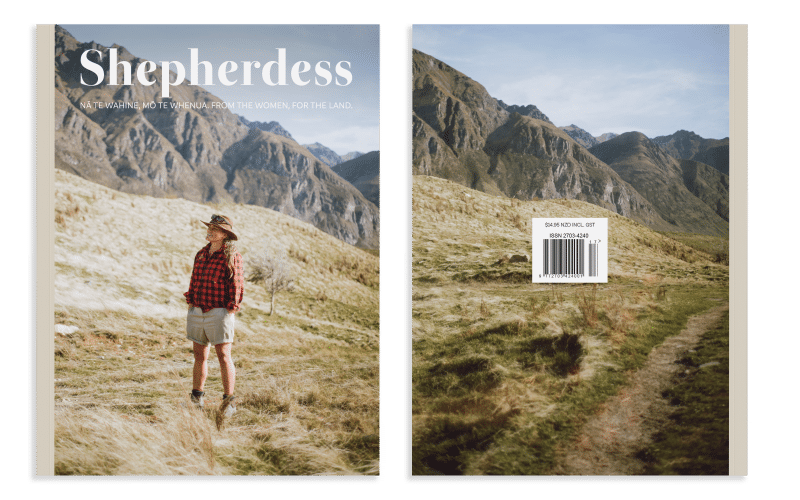
Out Now
Seventeenth Edition
Our beautiful Ngahuru Autumn 2024 Edition is out now!
